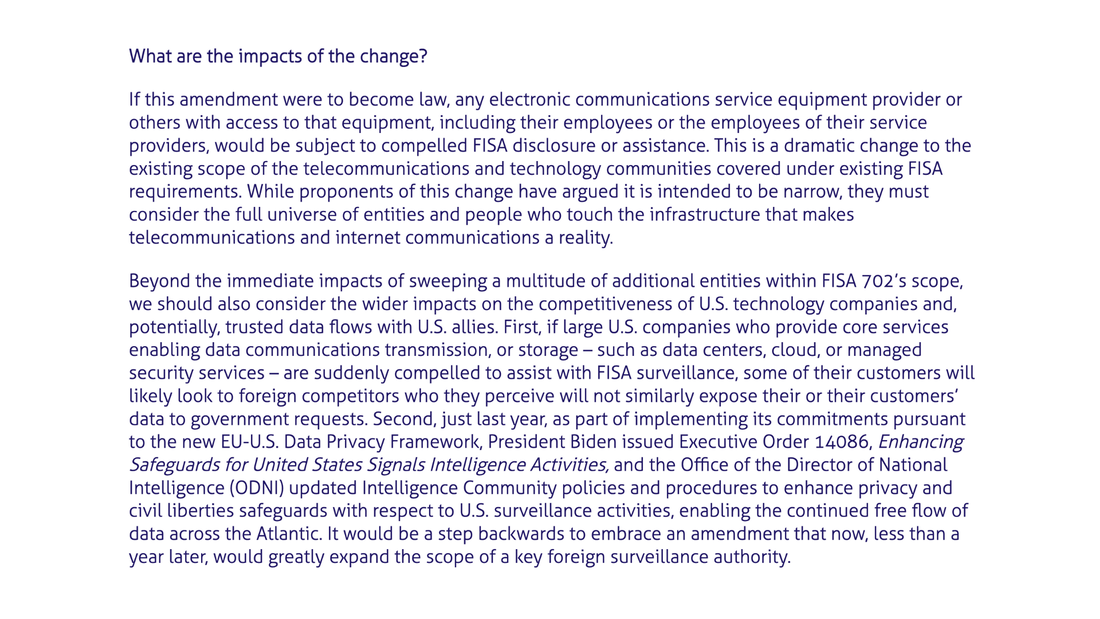|
ITI is the big tent tech association with members that rank among America’s most innovative companies, such as Dell, Salesforce, and Texas Instruments. ITI is warning the Senate to strip out language in the Reforming Intelligence and Securing America Act (RISAA) that “vastly expands the U.S. government’s warrantless surveillance capabilities.”
This language was added as an amendment by the House Permanent Select Committee on Intelligence. It requires “any service provider” or “custodians” with “access to equipment that is being or may be used to transmit or store wire or electronic communications,” to grant the government access to warrantlessly acquired messages. Some on Capitol Hill are questioning if this provision is really as broad as it reads. It is being portrayed by the intelligence community as a technical fix that will allow the NSA to selectively surveil foreign intelligence targets. The ITI and hundreds of other organizations beg to differ. ITI writes that adding “access to equipment” is a monumental change because – from routers and switches to servers and virtual networking gear to the internet and communications that ride on it – all global communications transmission and storage are powered by real-life physical information and communications technology (ICT). And ITI writes “there are tens of thousands of such companies” that use such equipment. “Expanding the definition to ‘any’ service provider by dropping ‘communications’ has equally wide-ranging implications when we factor in the multiplicity of service providers who play a role in helping to transmit or store the ICT communications,” ITI writes. “For example, on its face the amendment would appear to cover data centers, cloud storage providers, co-location providers, managed security services providers and a variety of other companies who provide services underlying or related to ICT communications transmission and storage; or merely those many companies and individuals who have access to the equipment necessary to provide such services – from building and facilities owners/landlords to cleaning/janitorial staff to the many types of commercial entities that provide a WiFi connection to their guests.” (Emphasis added.) Thus, the nation’s most innovation companies validate civil liberties experts who characterize this amendment as the “Everyone’s a Spy” provision. On a final note, ITI writes that this provision complicates the already contentious and complicated efforts of the Biden Administration to comply with the new EU-US Data Privacy Framework. It is hard to imagine that European politicians and EU regulators will not react to this vast expansion of U.S. surveillance, most likely in a protectionist manner that will harm U.S. exports and competitiveness. So take it from the experts – this language is as exactly as expansive as it reads. It is critical for the Senate to remove it before passing the bill. Comments are closed.
|
Categories
All
|


 RSS Feed
RSS Feed